MercoPress. South Atlantic News Agency
Economy
-
Tuesday, July 10th 2018 - 07:15 UTC
Trump picks strong business-friendly candidate to the Supreme Court

President Donald Trump on Monday night picked Brett Kavanaugh to fill an open seat on the Supreme Court, potentially creating the most business-friendly high court since before the New Deal in the 1930s. The nomination of Kavanaugh to replace the retiring Anthony Kennedy is another win for corporate America.
-
Tuesday, July 10th 2018 - 07:08 UTC
Brazilian truckers strike had a strong impact on June inflation

Product shortages due to a truckers' strike lifted Brazil's inflation rate near the midpoint of the official target range in June, underlining the deep impact of the nationwide protests. Consumer prices tracked by the benchmark IPCA index rose 4.39% in the 12 months through June, government statistics agency IBGE said.
-
Monday, July 9th 2018 - 07:43 UTC
Argentina's austere Independence Day celebration in Tucuman, with no military parade

President Mauricio Macri and his cabinet will be celebrating Argentina's Independence Day, Monday 9 July at the Historic House in the northern province of Tucuman, where the declaration was first announced 202 years ago. Contrary to other years there will be no military parade in Tucuman or Buenos Aires, allegedly as a consequence of the strict austerity measures imposed by the Macri administration.
-
Monday, July 9th 2018 - 07:08 UTC
“Argentina on the rocky road to recession”, anticipates The Economist
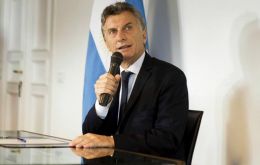
On a residential street corner in Buenos Aires, Van Koning Market sells imported beers to the city’s well-heeled. Since it opened in June last year costs have soared. The peso has plummeted, meaning wholesale prices have shot up. Inflation is running at 26%; the reduction of government subsidies means the monthly electricity bill has risen from 700 pesos to 4,000 pesos (US$ 142).
-
Friday, July 6th 2018 - 10:56 UTC
US tariffs on Chinese goods become effective: global trade war takes off?
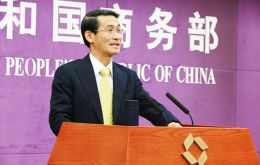
US President Donald Trump fired the biggest shot yet in the global trade war by imposing tariffs on US$ 34 billion of Chinese imports. China immediately said it would be forced to retaliate. The duties on Chinese goods started at 12:01am Friday in Washington, just after midday in China.
-
Friday, July 6th 2018 - 08:43 UTC
Brexit and the Falkland Islands: Potentially catastrophic?
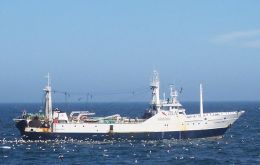
Brexit could be “potentially catastrophic,” for the Falklands according to a recent UK newspaper article. And by all accounts it could have a serious impact if heavy tariffs were applied to goods exported from the Islands into the EU. But just how bad could it be?
-
Friday, July 6th 2018 - 08:16 UTC
The new oil cartel threatening OPEC

When reports emerged that India and China are in talks about forming an oil buyers' club, OPEC was probably too busy with its upcoming June 22 meeting to concern itself with that dangerous alliance. Now, it may be time for it to start worrying.
-
Thursday, July 5th 2018 - 08:48 UTC
Latam agriculture and fisheries production to expand 17% over the next decade
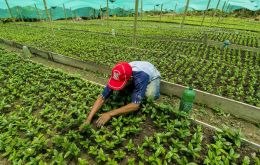
Agricultural and fisheries production in Latin America and Caribbean is projected to expand by 17% over the next ten years, says a new report from the Organization for Economic Co-operation and Development (OECD) and the Food and Agriculture Organization of the United Nations (FAO).
-
Thursday, July 5th 2018 - 08:41 UTC
Brazilian stock market up 1%; Electrobras shares soar 18%
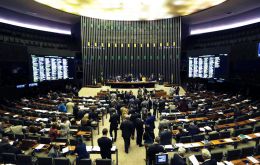
Brazil's benchmark Bovespa index jumped more than 1% on Wednesday in low-volume trading on the U.S. Independence Day holiday, while shares of Brazilian power utility Centrais Elétricas Brasileiras SA soared.
-
Thursday, July 5th 2018 - 08:16 UTC
Brazil industrial production plummets in May on truckers strike

Industrial output in Brazil plummeted in May at the sharpest pace in a decade, highlighting the deep impact of a nationwide truckers' strike in the final weeks of that month. Production fell 10.9% from April, government statistics agency IBGE said on Wednesday, the largest decline since December 2008.
